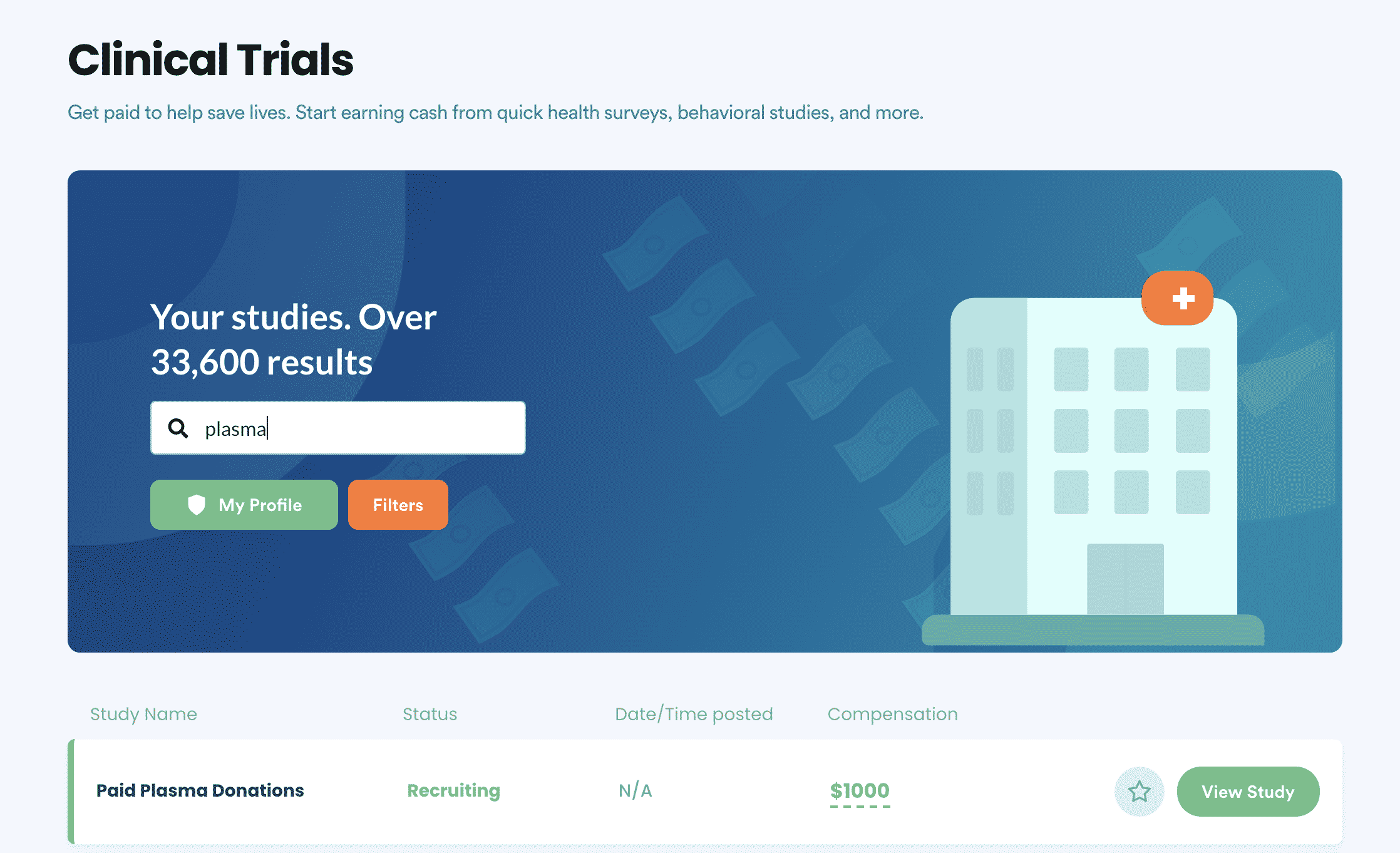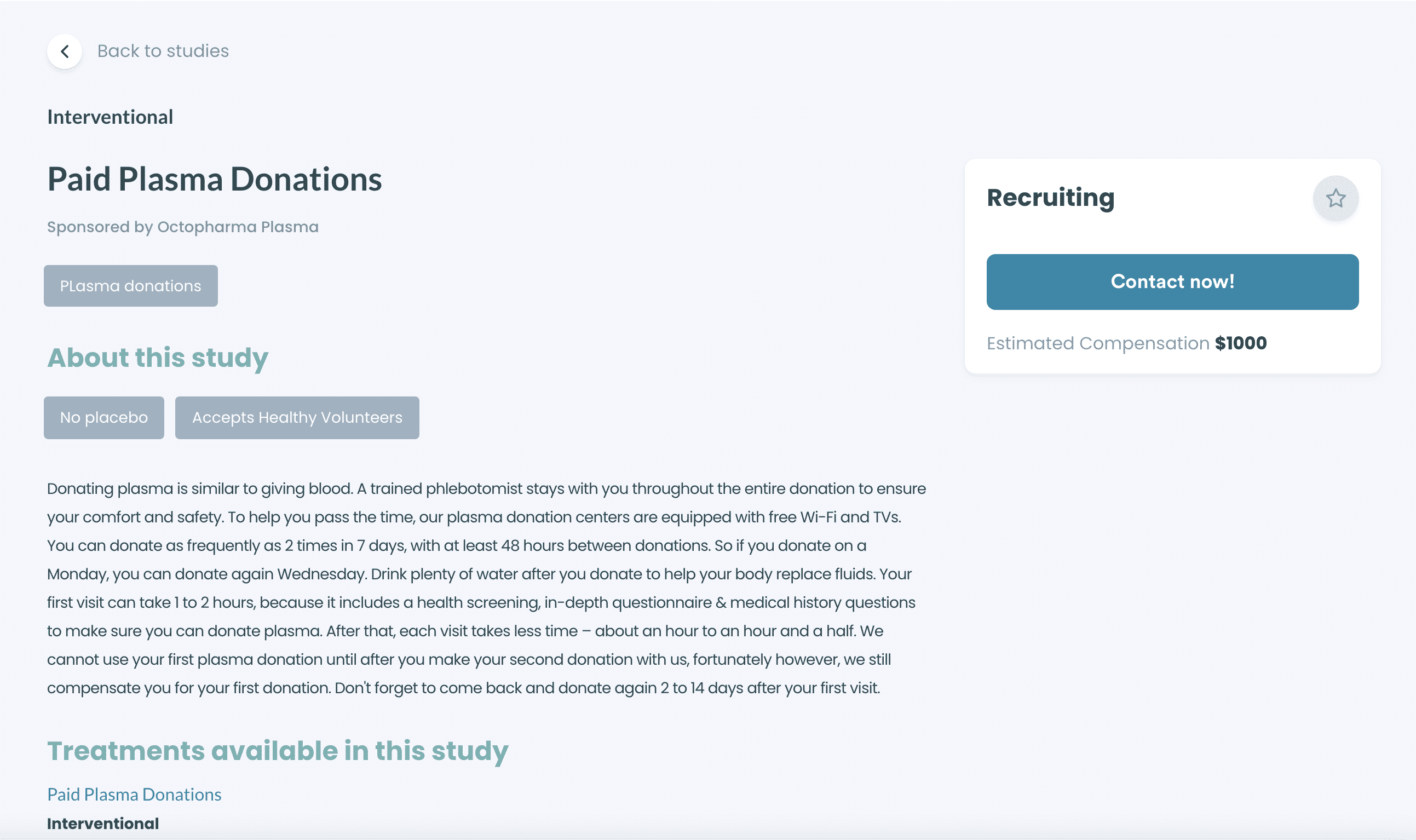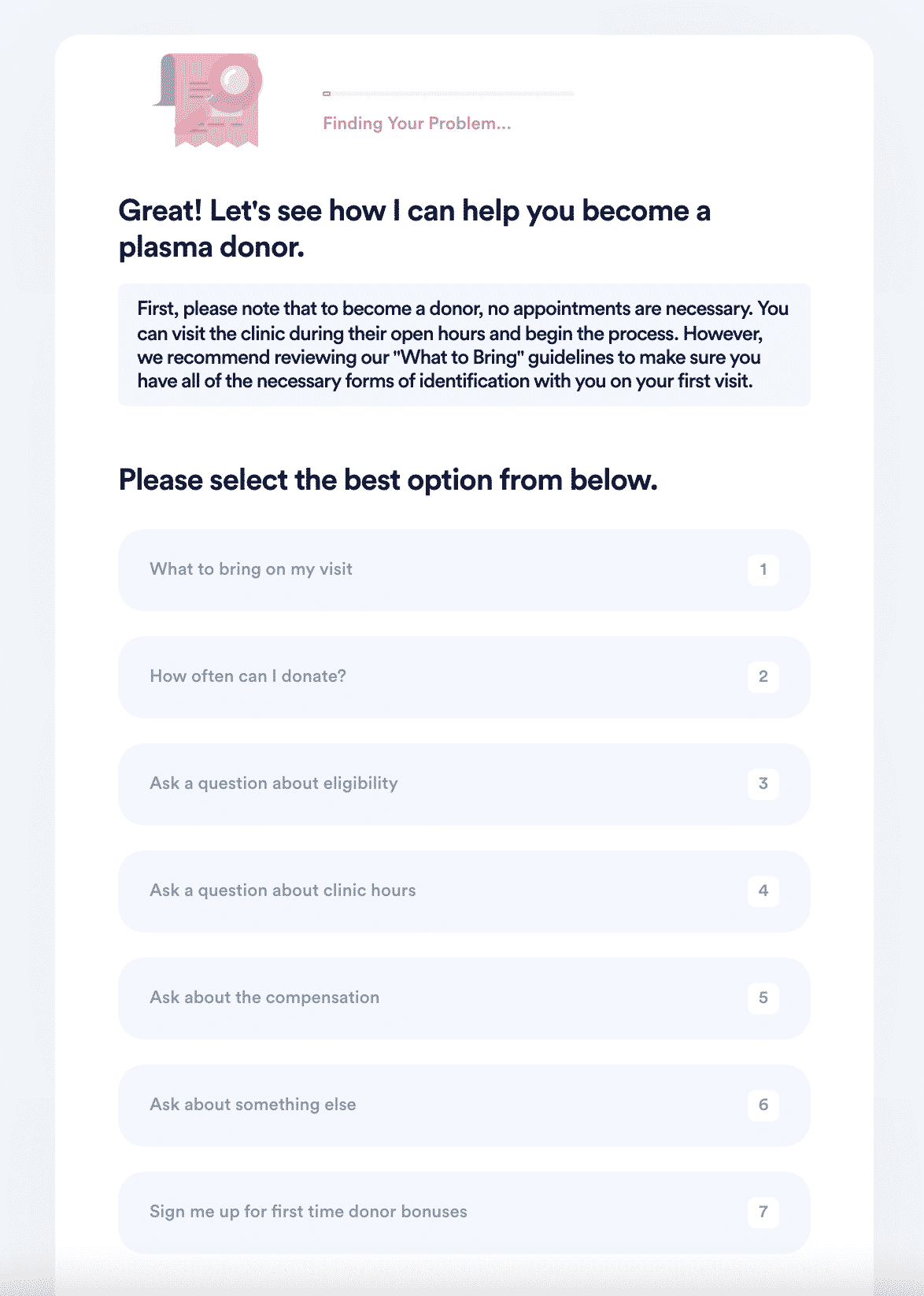How Much Do You Get Paid To Donate Plasma For The First Time
It is no wonder so many people are curious about how much you get paid for donating plasma. The earning potential may look enticing, but it's important to be informed before deciding whether or not to donate blood or plasma.
donates it is called a "screening" donation. The donor is paid their usual fee for this type of donation. Donors may be asked to return daily during the week following their initial screening so that their blood can be tested again to see if they are eligible as regular donors.
The process of donating plasma can be a lengthy one, but it doesn't have to be confusing. DoNotPay has resources to help!
What Is Plasma/Why Donate Plasma?
is the pale-colored liquid part of your blood. It carries important proteins like antibodies and clotting factors, which help you to fight serious infections and stop bleeding. Plasma also carries platelets, which help your blood to clot.
Plasma is valuable because it contains antibodies and other proteins which help fight infections. It also carries clotting factors, so people with hemophilia can stop bleeding easily. These valuable plasma proteins are also used to create therapies that save lives.
The Plasma Donation Process
The plasma donation process is a little more involved than giving blood, but it's still not too complicated:
- Your arm will be wrapped in an elastic bandage and a needle placed in the crook of your elbow to collect the blood.
- If you don't want to watch plasma being collected from your arm, you can instead watch television through a set of video glasses.
- After your blood is collected, you will be taken to a recovery area where you can relax until you feel well enough to leave.
- You should plan to spend at least two hours throughout the entire plasma donation appointment.
Plasma Donor Eligibility Requirements
Plasma donors are required to meet all of the following requirements:
- You must be 18 years or older to donate plasma.
- You must weigh at least 110 pounds and be in good health.
- You must be able to pass a mini-physical and medical questionnaire.
- All donors must provide identification and proof of current address.
People Who Cannot Donate Plasma
- People with specific medical conditions, such as cancer, cannot donate plasma.
- People who have recently traveled to other countries where certain infectious diseases are highly prevalent should not donate plasma.
- People with serious colds or the flu may be advised against donating until they feel better.
- Some medications can affect your eligibility for plasma donation. If you're unsure whether any medications you're taking will affect your eligibility, call the plasma donation center that you plan to visit.
- Some tattoos, brands, body piercings, acupuncture sites, or permanent makeup can affect your ability to donate plasma.
How Often Can You Donate Plasma?
Most plasma donation centers will allow you to donate no more than twice a week.
Things to Keep in Mind Before Donating Plasma
Before you decide to donate plasma, be sure that you can follow all of the eligibility requirements and that donating plasma is a safe option for you. The process of giving plasma does come with some risks, but these are very low.
What Should I Do Before Donating Plasma?
Be sure you understand the process of donating plasma and its potential risks before signing up for an appointment. Food and medications can affect how your body handles donation, so make sure that you eat a meal high in protein and avoid aspirin or other blood thinners before your appointment. Also, be sure to tell your doctor about all medications you are currently taking in case they should have any interactions with the procedure.
What Should I Do After Donating Plasma?
After donating plasma, it is important to drink plenty of fluids so that you stay hydrated. Many people experience some mild soreness when they give plasma due to needle insertion, so take it easy after your donation session and make sure you have a ride home from your plasma center.
After donating plasma, most people notice that their hands feel cold and they may be lightheaded for a short time. This is normal, so just sit still until you feel better after your donation session.
Steps to Donate Plasma on Your Own
If you're interested in donating plasma, there are a few steps you can take to get started:
| Go to the CSL Plasma website. | Type in your zip code to find plasma donation centers near you. |
| Set up an appointment with the plasma center of your choice. | Appointments typically last between two and three hours, but some places offer appointments as short as one hour so that donors don't have to take too much time out of their busy schedules. |
| When you arrive at the plasma donation center, make sure that you check in with a member of the staff and receive an armband before donating. | The receptionist will ask your name to find your record on file. They will also take your temperature, blood pressure, pulse, weight, and height. Some plasma donation centers may also require that you fill out paperwork ahead of time so that everything is ready for you when you come in for your appointment. |
| After the initial donor screening process, you will be taken to have blood drawn from one arm to verify that it matches your identification card before being pricked again in the other arm for plasma donation using double-needle plasmapheresis machinery. | This first donation is just a test to confirm that your blood type matches what the center has on file for you. |
| The second donation will complete your plasma donation session, and you can expect to receive payment during or shortly after this final portion of the process. | Most donors are able to make $20-$50 per donation depending upon their weight, height, and how often they donate plasma. Plasma centers also offer bonuses for referring friends who become new donors or donating platelets instead of plasma if certain conditions apply. |
How to Donate Plasma Using DoNotPay
DoNotPay will provide you with a list of plasma donation sites near your current location. It will help you contact each site to understand which days they are open, how much compensation the site offers, and their requirements for donors. DoNotPay will even remind you when it is time to donate!
Here's how you can use DoNotPay to become a plasma donor:
- Search "plasma donations" on DoNotPay and find the nearest donation clinic through our clinical trials product.

- Select the "Contact Now" button to learn more about eligibility criteria, contact the clinic with questions, or sign up for first-time donor bonuses.

- Verify your information and submit your inquiry! DoNotPay will contact the clinic on your behalf and make sure your questions get answered.

Why Use DoNotPay to Become a Plasma Donor?
Don't go through the hassle of trying to contact plasma donation centers on your own. DoNotPay will do it for you!
DoNotPay makes life easier by searching for clinic locations near you and contacting them on your behalf so you don't have to worry about making a mistake while filling out forms or talking on the phone.
What Else Can DoNotPay Do?
DoNotPay can do more than just help you become a plasma donor. We can also help you with other day-to-day tasks including:
- Identity Theft
- HR Complaints
- Get Free Trials & Don't Get Charged
- Recalls
- Jump the Phone Queue for Any Company
Sign up for DoNotPay today!


